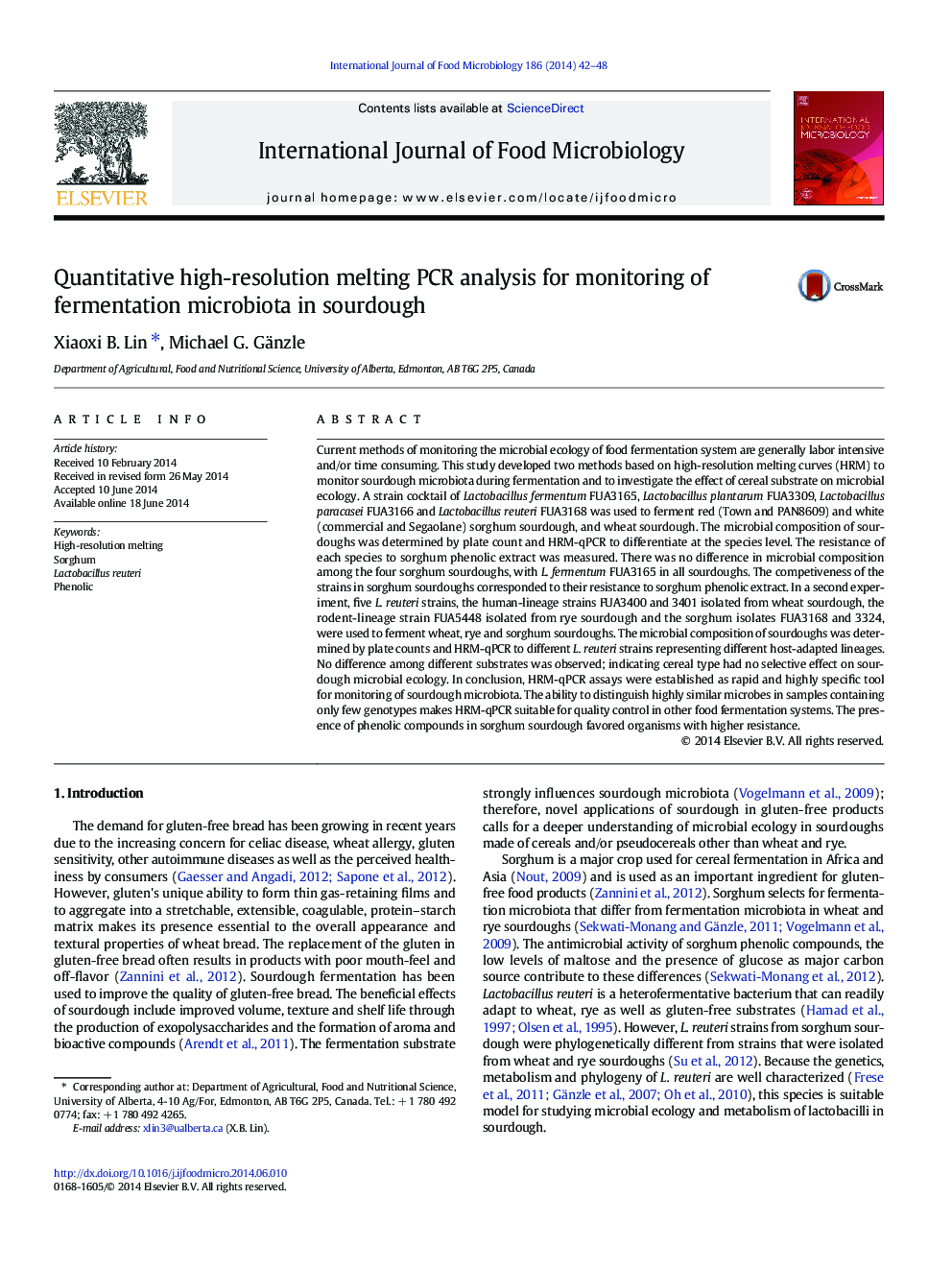| کد مقاله | کد نشریه | سال انتشار | مقاله انگلیسی | نسخه تمام متن |
|---|---|---|---|---|
| 6290031 | 1616597 | 2014 | 7 صفحه PDF | دانلود رایگان |
عنوان انگلیسی مقاله ISI
Quantitative high-resolution melting PCR analysis for monitoring of fermentation microbiota in sourdough
دانلود مقاله + سفارش ترجمه
دانلود مقاله ISI انگلیسی
رایگان برای ایرانیان
کلمات کلیدی
موضوعات مرتبط
علوم زیستی و بیوفناوری
علوم کشاورزی و بیولوژیک
دانش تغذیه
پیش نمایش صفحه اول مقاله

چکیده انگلیسی
Current methods of monitoring the microbial ecology of food fermentation system are generally labor intensive and/or time consuming. This study developed two methods based on high-resolution melting curves (HRM) to monitor sourdough microbiota during fermentation and to investigate the effect of cereal substrate on microbial ecology. A strain cocktail of Lactobacillus fermentum FUA3165, Lactobacillus plantarum FUA3309, Lactobacillus paracasei FUA3166 and Lactobacillus reuteri FUA3168 was used to ferment red (Town and PAN8609) and white (commercial and Segaolane) sorghum sourdough, and wheat sourdough. The microbial composition of sourdoughs was determined by plate count and HRM-qPCR to differentiate at the species level. The resistance of each species to sorghum phenolic extract was measured. There was no difference in microbial composition among the four sorghum sourdoughs, with L. fermentum FUA3165 in all sourdoughs. The competiveness of the strains in sorghum sourdoughs corresponded to their resistance to sorghum phenolic extract. In a second experiment, five L. reuteri strains, the human-lineage strains FUA3400 and 3401 isolated from wheat sourdough, the rodent-lineage strain FUA5448 isolated from rye sourdough and the sorghum isolates FUA3168 and 3324, were used to ferment wheat, rye and sorghum sourdoughs. The microbial composition of sourdoughs was determined by plate counts and HRM-qPCR to different L. reuteri strains representing different host-adapted lineages. No difference among different substrates was observed; indicating cereal type had no selective effect on sourdough microbial ecology. In conclusion, HRM-qPCR assays were established as rapid and highly specific tool for monitoring of sourdough microbiota. The ability to distinguish highly similar microbes in samples containing only few genotypes makes HRM-qPCR suitable for quality control in other food fermentation systems. The presence of phenolic compounds in sorghum sourdough favored organisms with higher resistance.
ناشر
Database: Elsevier - ScienceDirect (ساینس دایرکت)
Journal: International Journal of Food Microbiology - Volume 186, 1 September 2014, Pages 42-48
Journal: International Journal of Food Microbiology - Volume 186, 1 September 2014, Pages 42-48
نویسندگان
Xiaoxi B. Lin, Michael G. Gänzle,